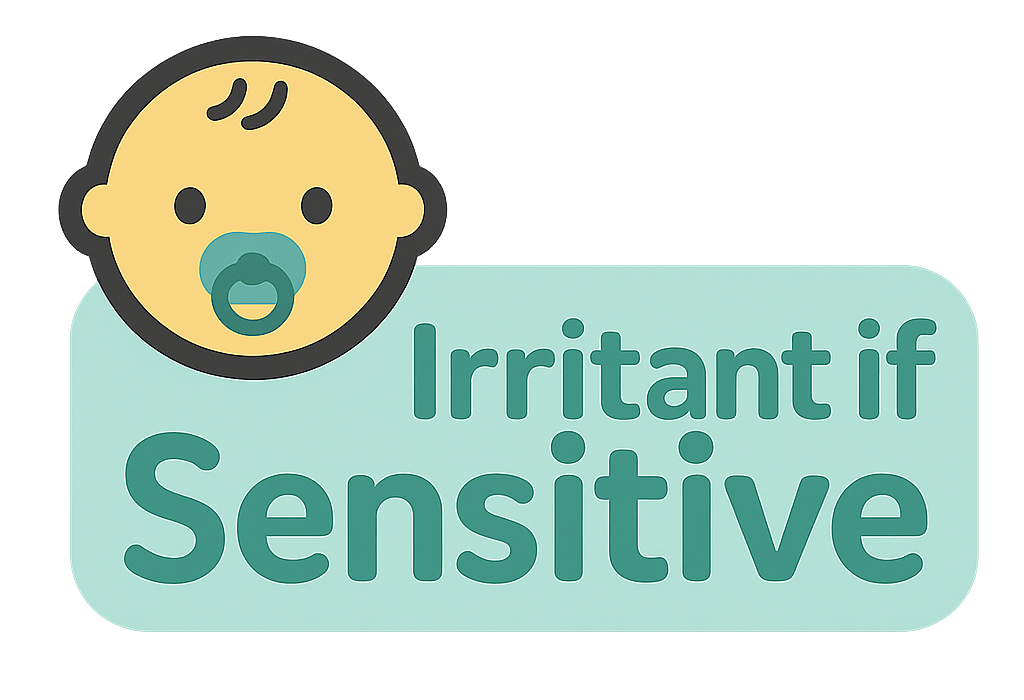Check for Different Age (6 available)
Can older babies use Propylparaben?
ℹ️General Overview
For infants (6-12 months), propylparaben is not recommended. There is evidence it can act like a hormone and studies show possible effects on developing reproductive systems. Babies' skin absorbs more and their bodies are still developing, so extra caution is needed.
✅What to Do
Avoid products that list propylparaben (or 'propyl paraben', 'E216') on the label for babies 6-12 months. Choose products specifically made for infants that are paraben-free and fragrance-free. Do not put products with propylparaben on broken or irritated skin, the diaper area, or near the mouth. If you are unsure, pick a different product or ask your pediatrician.
⚠️Warnings
Watch for skin redness, rash, swelling, or hives after using a product that may contain propylparaben — these are signs of an allergic reaction. Regulatory reviews and scientific studies (European safety reviews, chemical agency findings, and peer-reviewed animal studies) have raised concerns about hormone-like effects and developmental risks; because of that, avoid use on infants. If you suspect a reaction or have concerns about developmental exposure, contact your pediatrician.
Are you holding the product?
Scan the full ingredient label and understand if it's safe for your child.
Safety Risk Labels
This ingredient has the following documented risks:








Tap or hover over labels to see detailed risk information.
Alternative Names for Propylparaben
This ingredient may also be listed as:
Always check ingredient labels carefully, as ingredients may be listed under different names.
Products Containing Propylparaben
This ingredient is found in the following products:
This list shows products that contain Propylparaben or its alternative names.
Research Articles on Propylparaben
Scientific research related to this ingredient:
These research articles provide scientific evidence about Propylparaben safety and effects.
Common Questions About Propylparaben
Can older babies safely use Propylparaben?
Propylparaben is not recommended for 6-12 month old babies due to potential safety risks.
What are the confuse hormones risks of Propylparaben for older babies?
Acts like fake hormones in the body, confusing natural signals. This is especially important for babies whose skin and systems are still developing.
What are the hormones risks of Propylparaben for older babies?
May mess with natural hormone development in babies and children. This is especially important for babies whose skin and systems are still developing.
What are the fertility risks of Propylparaben for older babies?
Some studies link this to future fertility or reproductive issues. This is especially important for babies whose skin and systems are still developing.
What are the irritant risks of Propylparaben for older babies?
Can cause skin redness, itchiness, or rashes—especially on sensitive baby skin. This is especially important for babies whose skin and systems are still developing.
What are the eczema risks of Propylparaben for older babies?
Linked to triggering or worsening eczema and similar skin conditions. This is especially important for babies whose skin and systems are still developing.
What are the immune system risks of Propylparaben for older babies?
Could weaken or confuse immune system. This is especially important for babies whose skin and systems are still developing.
What are the banned risks of Propylparaben for older babies?
Banned or heavily restricted in one or more countries. This is especially important for babies whose skin and systems are still developing.
What are the environmental risks of Propylparaben for older babies?
Possible negative effects on the environment This is especially important for babies whose skin and systems are still developing.
What products contain Propylparaben?
Propylparaben is commonly found in skincare products, cosmetics, and topical applications. Always check ingredient labels before use.
Is this appropriate for older babies to using products with Propylparaben?
The appropriate age depends on the specific ingredient properties and concentration. This analysis is for 6-12 month old babies. Use the age selector above to check other ages.
Want to scan another product?
Use our camera scanner to analyze more ingredient labels
Scan Another Product